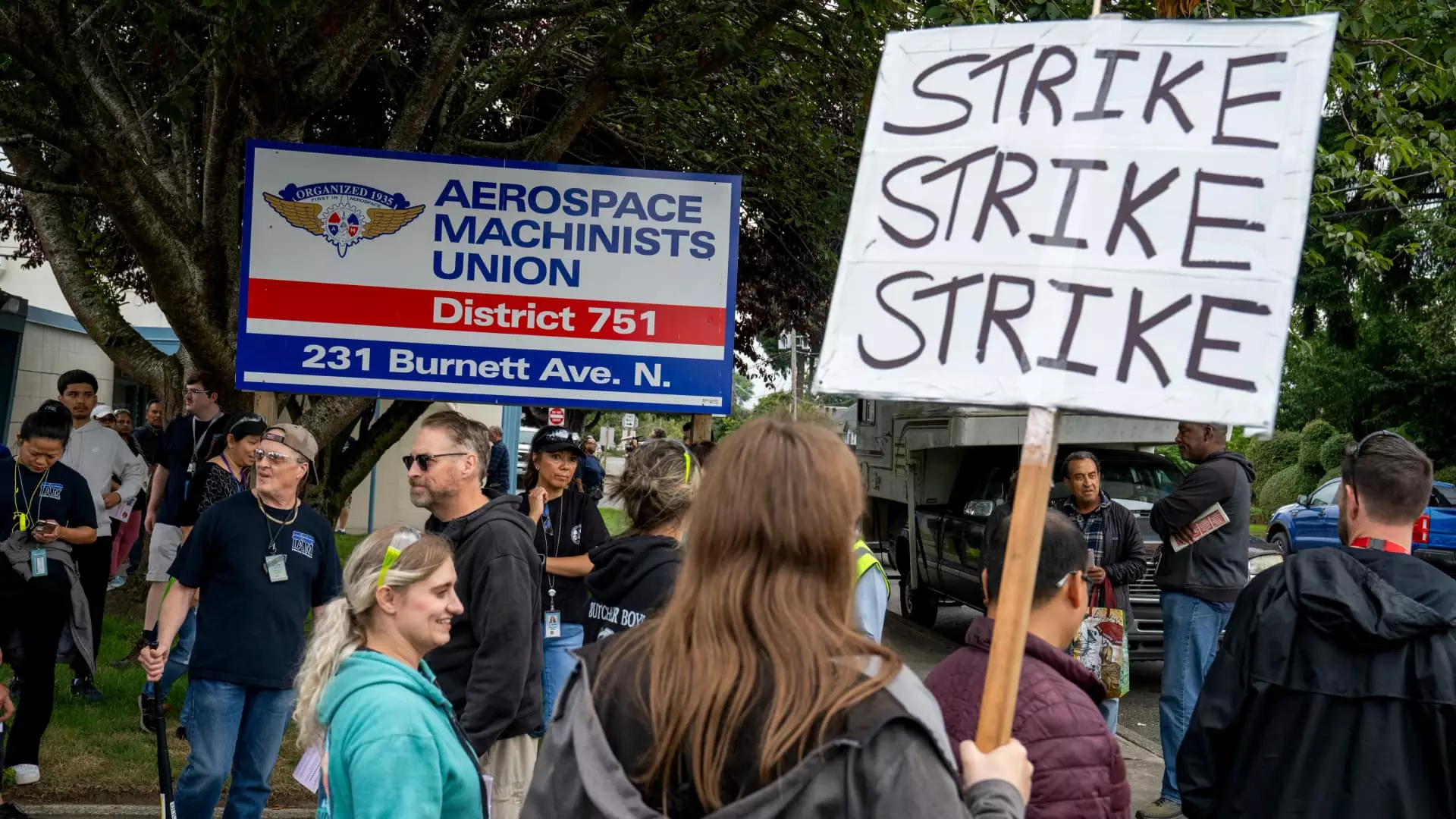On a pivotal Friday, over 30,000 Boeing workers embarked on a strike, a move anticipated after an overwhelming rejection of a proposed labor contract. After manufacturing challenges and safety-related scandals that have haunted the aviation giant, this latest labor dispute threatens to plunge the company deeper into crisis. The workforce, which spans the Seattle region and Oregon, decisively voted against a tentative agreement put forth by Boeing and the International Association of Machinists and Aerospace Workers (IAM). The vote revealed a staggering 94.6% rejection rate, with an even more pronounced 96% backing for a strike. Such overwhelming numbers indicate acute dissatisfaction among employees, reflecting long-standing frustrations with management.
IAM District 751 President Jon Holden characterized the strike as an “unfair labor practice strike,” asserting that Boeing had engaged in “discriminatory conduct” and other forms of intimidation against workers. This assertion sheds light on the often-contentious relationship between management and labor within the aerospace sector. The crux of this conflict resides in workers’ complaints regarding the proposed contract that allegedly failed to address escalating living costs. While the deal boasted 25% wage increases and enhancements to health-care and retirement benefits, the union had initially sought wage hikes closer to 40%. This significant gap illustrates the disconnect between Boeing’s management and its workers, highlighting how disconnected decision-making can foment discord.
Boeing’s response to this labor movement was conspicuously muted. Although Stephanie Pope, the CEO of Boeing’s commercial airplane sector, defended the tentative agreement as the “best contract we’ve ever presented”, her statement failed to assuage workers’ concerns. Historically, labor negotiations have been fraught with tensions, often leading to long-standing animosities that can cripple production. Kelly Ortberg, who has held the CEO position for just five weeks, called for acceptance of the proposed contract, cautioning against the repercussions of a strike on the company’s recovery. However, the echoes of past strikes, notably the nearly two-month-long work stoppage in 2008, loom large over this situation, reminding stakeholders of the potential for extended labor disputes to wreak havoc across supply chains.
From a financial standpoint, the implications of this strike are profound and potentially devastating. Analysts predict that a 30-day strike could incur losses of approximately $1.5 billion for Boeing. Such enormous costs could not only affect the company’s direct financial standing but also destabilize suppliers and broader supply chains—elements crucial to the aerospace industry’s intricate ecosystem. If the tentative agreement had been accepted, analysts anticipated an annual positive impact of around $900 million. Therefore, the stakes are higher than ever: workers are not just fighting for their livelihoods but also for the stability of an entire industry that is still reeling from accumulated crises.
The ramifications of compromised labor relations extend beyond Boeing’s immediate challenges. In a climate of supply and labor shortages affecting various sectors, this strike poses questions about the long-term health of the aviation industry. Boeing has been struggling to meet production targets while simultaneously mitigating manufacturing errors; these hurdles have raised questions about the company’s ability to regain its footing. As industry watchers keep a close eye on Boeing’s production capabilities and labor dynamics, this strike serves as a critical reminder of how intertwined operations, labor relations, and financial viability truly are.
Boeing finds itself at a significant crossroads. The rejection of the contract symbolizes a desperate call for change among workers who feel neglected amid rising living costs and stagnant wages. As the company grapples with public relations fallout and the threat of continued strikes, it must reconsider how to negotiate with its workforce to ensure future productivity and restore trust. Without effective dialogue and genuine efforts to address problems, both Boeing’s reputation and its financial stability may hang in the balance, leaving an indelible mark on the aviation industry for years to come.

